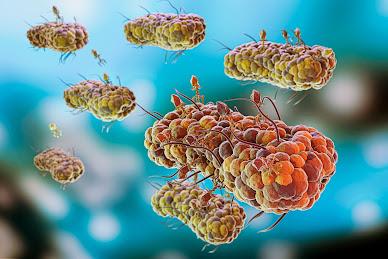Imagine enjoying a refreshing swim on a hot
summer day, unaware of the potential dangers lurking in the water. Naegleria
fowleri, a microscopic organism commonly found in warm freshwater environments,
has become a topic of concern due to its association with a rare but
devastating infection. In this article, we will delve into the world of
Naegleria fowleri, exploring its symptoms, infection, prevention, treatment,
survivor stories, lawsuits, and the importance of awareness campaigns.
Naegleria fowleri: An Overview
Naegleria fowleri is a free-living amoeba that thrives in warm freshwater bodies such as lakes, hot springs, and untreated swimming pools. Although the chances of infection are incredibly low, it is essential to understand the potential risks and take necessary precautions to protect ourselves and our loved ones.
Symptoms of Naegleria fowleri Infection
Recognizing the symptoms of Naegleria fowleri infection is crucial for early detection and prompt medical intervention. Common symptoms include severe headaches, fever, nausea, vomiting, a stiff neck, seizures, confusion, and hallucinations. It is important to note that these symptoms may resemble those of other common illnesses, making diagnosis challenging.
Understanding Naegleria fowleri Infection
Naegleria fowleri infection occurs when contaminated water enters the nasal passages, typically during activities like swimming or diving. The amoeba can then travel through the olfactory nerve to the brain, causing a rare and often fatal condition known as primary amoebic meningoencephalitis (PAM). Rapid progression of the infection requires immediate medical attention.
Preventing Naegleria fowleri Infection
Prevention is the key to safeguarding ourselves against Naegleria fowleri. Simple measures such as avoiding swimming in warm freshwater bodies with unknown water quality, using properly maintained swimming pools, and keeping the head above water or using nose clips can significantly reduce the risk of infection. Additionally, using sterile or properly treated water for nasal irrigation or sinus rinsing is essential.
Treatment Options for Naegleria fowleri
Treating Naegleria fowleri infection is challenging due to its aggressive nature and rapid progression. Antifungal medications, such as amphotericin B, are typically used, but the prognosis remains poor. Prompt medical intervention is crucial, as early detection and treatment can slightly improve the chances of survival.
Inspiring Survivor Stories: Overcoming Naegleria fowleri
In the face of adversity, stories of survival inspire hope and resilience. Several individuals have overcome Naegleria fowleri infection, defying the odds and sharing their remarkable journeys. These survivor stories serve as a reminder of the strength of the human spirit and provide support to those facing similar challenges.
Naegleria fowleri Lawsuits: Seeking Legal Recourse
In some cases, individuals affected by Naegleria fowleri infection or their families may consider legal action to seek justice or compensation. Lawsuits surrounding Naegleria fowleri aim to hold responsible parties accountable for negligence or improper maintenance of water sources. Consulting with legal professionals experienced in such cases can provide guidance and support.
Raising Awareness: Naegleria fowleri and Public Safety
Public awareness plays a crucial role in preventing Naegleria fowleri infections. Awareness campaigns, educational initiatives, and community outreach programs help disseminate accurate information, promote preventive measures, and ensure public safety. By spreading knowledge about Naegleria fowleri, we can empower individuals to take necessary precautions and seek timely medical attention.
Conclusion
Naegleria fowleri is a rare but potentially life-threatening organism found in warm freshwater environments. Understanding the symptoms, transmission, prevention, treatment, survivor stories, lawsuits, and awareness campaigns surrounding Naegleria fowleri is crucial for protecting ourselves and our communities. By staying informed, taking necessary precautions, and promoting awareness, we can minimize the risks associated with Naegleria fowleri and ensure a safer environment for everyone.
FAQs
Is Naegleria fowleri infection common?
- No, Naegleria fowleri infection is extremely rare but can be severe if contracted.
Can Naegleria fowleri infection be treated successfully?
- The prognosis for Naegleria fowleri infection is typically poor. Treatment options are limited, and early detection is crucial for slightly improved chances of survival.
Is Naegleria fowleri infection contagious from person to person?
- No, Naegleria fowleri infection is not contagious and does not spread from person to person.
Can chlorine in swimming pools kill Naegleria fowleri?
- Properly maintained and adequately chlorinated swimming pools can help reduce the risk of Naegleria fowleri infection.
How can I stay safe from Naegleria fowleri?
- You can stay safe by avoiding swimming in warm freshwater bodies with unknown water quality, using nose clips or keeping your head above water, and using sterile or properly treated water for nasal irrigation.














0 Comments